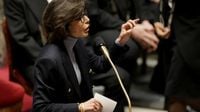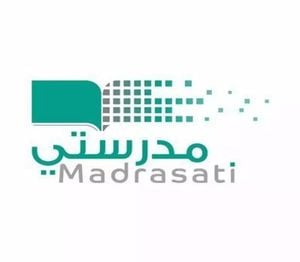On April 1, 2025, a heated altercation erupted during the examination of a draft reform of public broadcasting at the National Assembly, leading to the suspension of the session. The incident involved Rachida Dati, the Minister of Culture, and a civil servant from the Assembly, which has since sparked a political uproar.
The altercation occurred in the Cultural Affairs Committee, where the deputies were discussing a proposed law aimed at consolidating various public broadcasting entities into a single holding company, dubbed France Médias. The objective of this reform is to create a more efficient governance structure for France Télévisions, Radio France, and the Institut national de l'audiovisuel (INA).
According to socialist Fatiha Keloua Hachi, who chairs the committee, Dati confronted the civil servant during a break, which she described as a "taking to task." "I cannot tolerate this type of behavior," Keloua Hachi stated in a press release. She added that the conditions were not suitable for a calm debate, prompting her to suspend the examination of the text.
Debates had commenced earlier that afternoon, with around a thousand amendments still pending. The left-wing deputies expressed outrage over the incident, labeling it as "grave" and indicative of a broader issue regarding the treatment of civil servants. Deputy Aurélien Saintoul from the left-wing party LFI voiced his indignation, stating, "I was appalled that a civil servant was put under scrutiny because the work was not moving quickly enough."
However, sources close to Dati contested the characterization of the event, insisting that it was not violent. "It was not an incident per se; it was a discussion," a source told Le Figaro. They described the exchange as a misunderstanding, with the civil servant reportedly telling Dati, "Don't try to distort the procedure," to which Dati responded, "Don't speak to me like that."
The incident has been framed by some as a politically motivated maneuver by the left to obstruct the reform, which had just seen the government table last-minute amendments—a practice that the left had previously criticized. Emmanuel Grégoire, a deputy from the Socialist Party, indicated that they would assess the implications of this "extremely serious" incident.
As the debate unfolded, the atmosphere grew tense. Witnesses reported that Dati's tone escalated during her interaction with the civil servant. A parliamentarian who wished to remain anonymous described Dati as "contemptuous, belittling, and harsh," adding that Saintoul had to intervene to calm the situation. Another account mentioned Dati allegedly saying, "You speak too poorly, you abuse your position," further intensifying the altercation.
In the wake of the incident, the session remained suspended for the remainder of the evening, with uncertainty looming over whether the debates would resume as scheduled the following morning. The reform, which had already been validated in a first reading by the Senate in 2023, aims to streamline the governance of public broadcasting in France. However, it has faced significant opposition, with several hundred protesters gathering near the Palais Bourbon on the same day to voice their dissent against the proposed changes.
Critics of the reform argue that it resembles a merger, which could lead to job losses among the 15,000 to 16,000 positions affected within the sector. The proposed holding company, France Médias, would operate under a president and is expected to exclude the international branch of French public broadcasting, France Médias Monde, which includes channels like RFI and France 24.
On April 1, the left's protests against the reform continued to disrupt broadcasts on France Inter, France Info, and other networks, highlighting the contentious nature of the proposed changes. With the arrival of the reform at the National Assembly scheduled for April 10, 2025, the political landscape remains fraught with tension.
As the situation develops, the response from the government and the implications for public broadcasting in France will be closely monitored. Rachida Dati, who has been a prominent figure in the push for this reform, has emphasized its urgency, stating that failure to implement it could lead to inevitable weakening in the face of competition from digital platforms.
The ongoing dispute reflects broader concerns about the governance of public institutions and the treatment of civil servants in the political arena. With multiple stakeholders involved, including the left-wing opposition and public sector employees, the outcome of this situation could have lasting repercussions for French media and governance.









